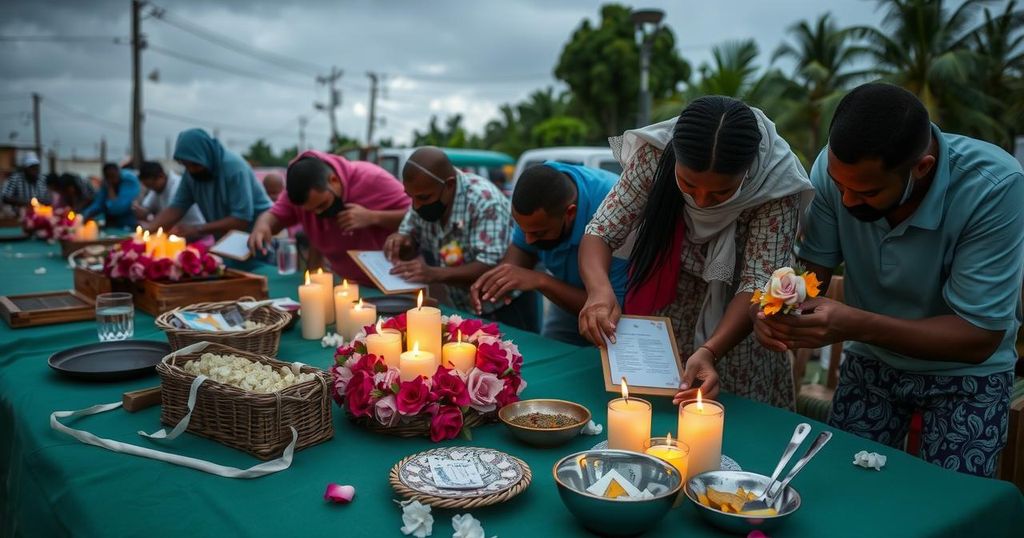Comoros Observes National Mourning As Cyclone Chido Devastates Mayotte

Comoros has declared a week of national mourning due to the devastating impact of Cyclone Chido on Mayotte, where significant loss of life and damage to infrastructure are reported. The storm, classified as category four, has raised serious concerns about casualties, particularly in impoverished areas. Rescue operations are ongoing, but the situation remains critical, with many residents facing shortages of essential supplies, including food and clean water.
The Comoros has announced a week-long national mourning period following the devastating impact of Cyclone Chido, which has severely affected the neighboring island of Mayotte. President Azali Assoumani proclaimed this period of grief will continue until Sunday, as many have lost their lives, and significant damage has been inflicted on infrastructure across the islands. The cyclone, classified as a category four storm with winds exceeding 220 kilometers per hour, struck Mayotte, prompting alarming concerns about casualties, especially in shantytowns housing numerous Comorans.
Local authorities in Mayotte, a territory known for its high population density, are estimating that the death toll could potentially reach into the thousands due to the severity of the cyclone, which is described as the worst to strike in nearly a century. Rescue operations are underway, with France dispatching military vessels and aircraft to deliver aid and support infrastructure recovery. However, many regions remain isolated, facing critical shortages of electricity, clean water, and essential supplies. Residents, particularly in makeshift shelters, are experiencing dire conditions, prompting urgent calls for assistance.
The structure and demographic composition of Mayotte—populated by a significant proportion of undocumented migrants—complicate the assessment of the disaster’s full impact. Many individuals have not sought refuge in accommodation centers prior to the cyclone due to fears of deportation. Consequently, the challenges in conducting a precise casualty count are exacerbated by cultural practices surrounding burials and the undocumented status of many residents.
As the region grapples with the aftermath of the cyclone, the urgent need for humanitarian assistance has intensified. Local officials warn that hunger is becoming increasingly prevalent as relief efforts strive to meet the basic needs of those impacted by Cyclone Chido, highlighting the precarious situation faced by this vulnerable population.
Cyclone Chido has wreaked havoc in the Indian Ocean archipelago of Mayotte, which faces severe socio-economic challenges, reflected in its classification as the poorest region in the European Union. The cyclone inflicted catastrophic damage, particularly in the underprivileged areas composed of makeshift housing. The demographic intricacies of Mayotte contribute to the complications faced during crises, as a significant portion of its population consists of undocumented migrants from adjacent islands and countries. The combination of poverty, high population density, and irregular immigration increases the vulnerability of residents to natural disasters like Cyclone Chido.
In summary, the tragic circumstances following Cyclone Chido necessitate immediate humanitarian efforts in Mayotte and the surrounding Comoros islands. The situation underscores the complexities brought about by demographic factors, infrastructure vulnerabilities, and socio-economic challenges facing these regions. As national mourning commences, the focus must be on mobilizing resources for relief and recovery to address the urgent needs of the affected populations and to mitigate the effects of such catastrophic events in the future.
Original Source: www.arabnews.com








